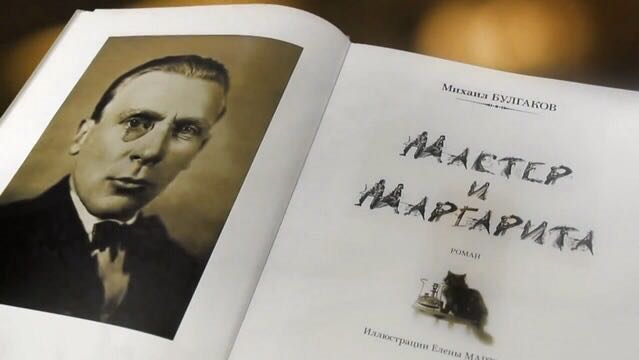Just finished watching the 10 episode tv series by Brotko. And realised that I have not cried so much for a drama for so long... so good that I'm left speechless. I did not dare to read in Russian yet, but will do one day (: Now I finally understand why some critics call it Bulgakov's завещание.
Xiaoqing Headded a note 8 years ago

Привет всем.
Just like the probably most well-known saying "Рукописи не горят" , which is now engrained in the language and speech.
Could you please kindly explain me the figurative meaning of the following expressions when used in the daily speech (if this is the case)?
Good day!
1. Осетрина второй свежести
2. Люди как люди... квартирный вопрос только испортил их
3. Попрошу не волновать интуриста
4. Не шалю, никого не трогаю, починяю примус....
Discussion (15)
I've only heard and used "второй свежести" regarding spoiled or bad quality food and "да я сижу примус починяю" to explain that you are not guilty and don't know anything about the situation. And I also like Bulgakov :)
Movie production of the novel "Master and Margarita" is a masterpiece. But, it should be understood that it is the vision of the Director. It would be better to read the novel "Master and Margarita". It's so awesome when you read the tragedy of William Shakespeare or the poems of Goethe in the original!! Quite a different understanding .
Ich bin ein Teil von jener Kraft,
Die Boses will und Gutes schafft. -
"Я - часть той силы, что вечно хочет зла и вечно совершает благо." -
I am part of that power which eternally wills evil and eternally works good.”
So Goethe described Mephistopheles and Bulgakov as well at the beginning of the novel, described by Woland.
Thanks for the explanation Артемий! How about "2. Люди как люди... квартирный вопрос только испортил их
3. Попрошу не волновать интуриста" ? Cheers
2. is mostly used as "квартирный вопрос испортил москвичей". used mostly in s sense "people are not really guilty of what they are", or "peopleare just q
just what circumstances bake them" I guess.
I'm not sure if I've ever heard 3. but I guess it comes from the status of tourists (интурист - иностранный турист) in the Soviet Union. we didn't have s lot of foreigners around. and we didn't know much about them. so they were partly revered, partly envied, partly hated sad partly feared.
Thanks a lot Igor. And thanks эрнст (:
Xiaoqing He, first of all I advise you to read the book "The Master and Margarita" in English.
It is very complex creation which nuances are understandable only for some (not for all) of Russian native speakers.
You can download (after registration on the site) Parallel text in Russian and English here:
As to: Люди как люди... квартирный вопрос только испортил их. It means what it means: "People like people ... only the housing problem has corrupted them".
You just should understand in the right way what is квартирный вопрос (verbatim the issue of the flats) or the housing issue/housing problem?
It means that in Moscow of that days (and in our days too, and not only in Moscow but in every non-small city) the flats (and any real estate in general) were very much appreciated, even too much, sometimes much more than another human' life... Some persons were so tempted of getting their own flat (or even part of the flat) that they were ready to kill for it.
That's why people were corrupted by the housing issue.
I would say that most of the muscovites of that time had to live in communal flats or even in shared rooms with all kind of neighbours and this could be very uncomfortable. Dwellings didn't belong to people and couldn't be bought, they were granted by the government. So since all the real estate was nationalised some strangers could come to live with you in you multi-room apartments. You can learn more about this issue if you read about the adventures of Bulgakov in Moscow.
As to: Попрошу не волновать интуриста. It is the separate question.
I don't know whether the same situation was in China (because it was communist, like the USSR was, and Mao Zedong in many respects was equal to Stalin) but in USSR there was juridical responsibility for pestering to the foreign citizens.
I can't say exactly now, what was the regulating legal act according to which
citizens of the USSR were usually been brought to juridical liability for such kind of "pestering" in Stalin time. But later, in 1980-s such kind of delinquency (and liability for it) was included in Codes on Administrative Offenses of all countries-participators of USSR. For example, The Code of the Belarusian SSR on Administrative Offenses of 1984 has Article 163 "Pestering to the foreign citizens".
The expression волновать интуриста (т.е. иностранного туриста) (to disturb the foreign visitor) in the context implies the illegal pestering to the foreign citizen.
I hope my explanation is enough to understand Bulgakov's satire in this expression.
Артемий Запевалов, excellent explanation about flats' issue!
well done guys!
Thank you Maksim for the bilingual book, just downloaded. Thank you both Maksim and Artemy for the explanations! Good day! cheers